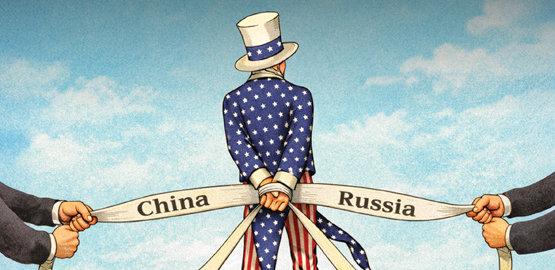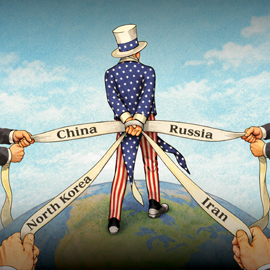News
Take a Lesson From the Cold War to Work With North Korea
In their classic work “Thinking in Time,” Richard Neustadt and Ernest May developed a useful manual of statecraft designed to improve the decision-making abilities of national leaders through the proper uses of history. The key to the case studies they examined in Cold War American foreign policy was illustrating the use or misuse of historical analogies decision-makers were referencing in their choices, and making transparent how those historical cases did or did not fit the issue at hand.
Was the Rise of ISSI Inevitable?
Barring some catastrophic policy blunder by the United States, the Islamic State, also known as ISIS or ISIL, will eventually be defeated. The US-led international coalition that has assembled to fight the most formidable terrorist organization of modern times overmatches ISIS on every relevant dimension – manpower, lethality, financial resources, global reach. As such, the defeat of ISIS, at least in its current form, is only a matter of time. But the group’s defeat will not resolve all of the questions that have been raised by its emergence. Looking forward, US policymakers will have to decide what to do next in America’s ongoing ‘global war on terror’
Is American Internationalism Dead? Reading the National Mood in The Age of Trump
“A world is collapsing before our eyes,” wrote Gérard Araud, the French ambassador to the United States, upon learning of Donald Trump’s election as president in November 2016. Many American internationalists probably felt just the same way. For roughly four generations prior to Trump’s victory, the United States had pursued a robust and engaged internationalism supported by a bipartisan political consensus. In November 2016, however, American voters elected a candidate who condemned many aspects of that internationalist tradition in harsh and unapologetic tones. The country that had spent decades erecting an international order based on free trade, multilateral cooperation, a global alliance network, and the promotion of democratic values had now chosen as its leader a man who voiced skepticism — if not outright hostility — toward nearly all the key components of this ambitious American project. In the wake of the election, there was thus a pervasive sense of despair among many foreign leaders—and no less, among members of the American foreign policy establishment. “The U.S. is, for now, out of the world order business,” Robert Kagan wrote. After more than 70 years, American internationalism was pronounced politically dead.
China’s Rising Seapower and Risk in Maritime Asia
American command of the seas in the Western Pacific has been essential to U.S. regional strategy over the past seventy years. The U.S. Navy’s dominance facilitated the uninterrupted flow of seaborne commerce, promoting transpacific access to markets and offering a chance at prosperity for those participating in the network of maritime trade. The naval service’s forward presence in Asia and its ability to respond rapidly to crises also deterred aggression and reassured allies, preserving a favorable balance of power.
Deterring China in the “Gray Zone”: Lessons of the South China Sea for U.S. Alliances
A “gray-zone” conflict is something like an incipient insurgency. French Army officer, Algerian War veteran, and counterinsurgency theorist David Galula notes that an incumbent government finds it hard to cope with “cold revolutionary war” because it remains unclear whether there will be a hot revolutionary war.
America’s Allies Are in Decline. Here’s How the US Should Adjust
Even as NATO heads of state prepare to discuss Russia and global terror at their annual summit this month, a deeper issue is haunting America’s allies around the globe: their relative military and economic decline over the past two decades — and the increasingly sharp geopolitical challenges this poses for the United States.

























